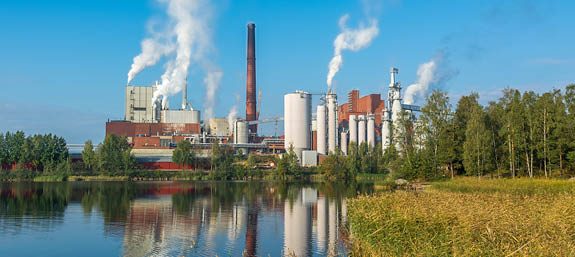
Proposed Air Quality Regulations for New York’s Oil and Gas Industry
June 14, 2021
By: Chad Powell
On April 21, 2021 the New York State (NYS) Department of Environmental Conservation (DEC) proposed new air quality regulations for the oil and natural gas sector. The proposed regulations are intended to lower methane and VOC emissions for new and existing sources throughout the state of New York. Additionally, these regulatory changes will comply with the requirements of EPA’s 2016 Control Techniques Guidelines for the oil and gas industry. Many of the proposed changes mirror federal regulations found in New Source Performance Standards (NSPS) Subparts OOOO and OOOOa. While these regulations will be new to New York, similar regulations have been proposed by state and local agencies throughout the country. Barring any changes to the final regulations, compliance would be required on and after January 1, 2023.
Proposed Regulations and Applicable Equipment
There are 6 different categories in the oil and natural gas sector that are covered by this proposed regulation, including upstream and midstream oil and natural gas operations. The proposed regulations cover:
- Controlling emissions from storage vessels when the potential to emit (PTE) is greater than or equal to 6 tons per year (TPY) of volatile organic compounds (VOCs);
- Instituting leak detection and repair (LDAR) requirements for gas-actuated pneumatic devices and pumps, centrifugal and reciprocating compressors, natural gas underground storage facilities, and metering and regulating components. LDAR inspection frequency is specific to the types of facilities and includes:
- Semi annual inspections for well sites;
- Quarterly inspections for gathering and boosting sources and the City Gate; and
- Bimonthly inspections at transmission compressor stations and storage facilities.
- Requiring the use of low-bleed (6 standard cubic feet per hour or less gas usage) pneumatic devices;
- Annual testing of gas-actuated pneumatic devices;
- Controlling VOC emissions from gas-actuated pneumatic pumps;
- Rod packing control and monitoring requirements for reciprocating compressors;
- Wet seal control and monitoring requirements for centrifugal compressors;
- Notification requirements for planned and unplanned blowdowns at compressor station and transmission pipelines;
- Record keeping and reporting of pigging activity emissions and volumes; and
- Reporting requirements for initial component inventories and updates as equipment is changed or installed.
What This Means for You
Owners and operations should evaluate their current compliance programs and determine how these proposed regulations will impact their operations. Five of the biggest impacts will be:
- Creating a field-wide LDAR program to cover all required equipment and meet the proposed timeline frequencies;
- Identifying, installing, and operating additional controls;
- Maintaining all record keeping for at least five years;
- Submitting additional reports by the proposed timelines;
- Increasing costs of compliance.
For More Information
The proposed regulations are available at https://www.dec.ny.gov/regulations/122829.html Written comments must be submitted to NYSDEC by 5 PM on July 26, 2021.
Have questions about this update? Need a permitting expert, or general help with your compliance efforts? Our regulatory experts can help. Click here to start a conversation.
 Chad Powell
Chad Powell
Mr. Powell has extensive experience in air permitting and compliance through working with both industry and government to implement business objectives while conforming to complex environmental regulations. He has advised clients in a variety of industries, with a focus on oil & gas upstream & midstream operations. Mr. Powell has experience with GHG calculation and reporting, permit strategy development, Best Available Control Technology (BACT) analyses, and compliance auditing.

